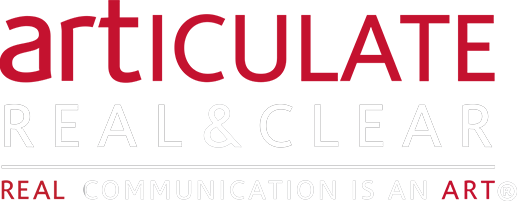Your voice needs to be heard. Your voice is essential in the various groups or teams you’re a part of. It needs to be heard with your family, in your organization, in a place you volunteer, or on your team at work.
Learn to Communicate better. Contact Us today!
Speaking up for things you believe in is important.
We’re doubling down on communication skills in the fight for voices to be heard. There is a commitment not only to conversations happening but also dialogue. We encourage people to use various communication tools that make a difference in people being present for each other and creating relationships.
The unique skills you acquired with your life’s journey and work experience add value to every interaction. And the power of that individuality can be smothered, silenced, or re-directed due to the dictates of the surrounding environment, teammates, or leaders.
Sometimes we silence ourselves.
At some point in your life, you may have experienced a push to fit in and not make waves. You may have hidden your viewpoint so that your interaction and responses created the least disturbances possible. Conversely, you may have experienced a push to stand out, be different, to claim your unicorn voice. Both extremes can silence or free our voices. Wherever you find yourself you can claim it, voice it. Share your insights, opinions, and ideas.
A healthy team is powerful.
Teams are powerful when they create space for individuals to speak up. They function effectively when all voices are heard. And yes, it’s more efficient. When team members think it’s more efficient to dive in with fewer insights or perspectives, it can be extremely short-sighted and sabotaging. In the long run, life has shown time and time again that efficiency is undermined by missing important information and by the lack of diverse perspectives.
Some teams operate in a way that undermines people feeling that they can speak up.
Conflict is a natural part of any team and, unfortunately, can silence some team members. Conflict requires skillful navigation to be sure that different opinions are heard. Team members react to conflict in a variety of ways, from shutting down to arguing. Conflict can sideline a worthy project. Ironically or counterintuitively, conflict and diverse ideas are the bedrock of excellent teamwork. You must respect and mine these ideas and the underlying reasons for the conflict to discover the value.
Even humor can be used to make others feel less than and will quiet them from sharing. Humor on a team can be part of the most incredible creative flow for all to feel included or humor can become a destructive team habit that excludes some. Humor is terrific and tricky. It must be carefully monitored.
A team must be careful of habits that create silos. Habits are created for many reasons, and most habits serve us to get through the day efficiently and effectively. “Bad habits” attract much attention, yet many of these patterns serve us well. And then, there are habits of assumed etiquette that seem innocuous but can get in the way of clear communication on a team. Habits that keep us connecting by being nice can counterintuitively separate us. For instance, if you nicely nod in response to a comment that you don’t agree with you’re not sharing your truth. You’re thwarting a project moving forward. It might not be a direct sabotage, but when nice is used to avoid honest opinions, it eats away at the foundation of trust.
Nice and polite seem to insinuate that we must agree with others to connect. When we honor with the truth and speak what we know, we’re being kind to others and creating authentic connections and sharing honest communication.
ARTiculate: Real&Clear advocates, supports, and emboldens the individual’s voice. That has been our guiding force since we were founded over a decade ago. Having voices heard is our commitment to teams so that they thrive and benefit from all the input from individuals on the team. The unique characteristics, personality quirks, and communication patterns must be celebrated and nurtured.
Healthy teams are based on being in a relationship and present for each other, which takes practice and courage. There is a give and take truly to listen and hear each other, not agree, but hear. And then, there needs to be a commitment to remain present and in dialogue. Not tossing monologues back and forth, but truly in conversation with curiosity, challenge, and flexibility as new information is heard.
We offer up five tools to guide conversations – to keep us connected.
Elements of each will most likely resonate with a truth you already hold and will support your voice being shared and heard:
- Allow self-awareness to keep you present and flexible in the moment. Not walling yourself off with self-consciousness on one extreme or self-involvement on the other. True awareness of self is a value to everyone as you navigate conversation and connection with your team members.
- Approach your curiosity with wonder and seek new information and insights. Ask: what’re you missing? What more could there be? Don’t settle for assuming you know – get curious and ask.
- Acknowledge that the other viewpoint is essential. You don’t necessarily have to agree. It’s helpful when you agree, but when you don’t, acknowledge what has been shared before you counter. It’s a nuanced difference that can change the whole chemical make-up of a conversation – keeping it from becoming a battle. It requires listening and hearing. Acknowledging what you heard the other person(s) say means that you have listened. So often, with topics that can be heated, the listening is skipped, and people don’t even realize it. If you cannot repeat or reflect on what they just said, you weren’t listening.
- Know that power dynamics can impact a conversation. When you deny the power dynamics of title, position, tenure, etc., you can get caught off guard or have the conversation stilted. Knowing a power dynamic exists and is a reality, you can approach the conversation differently rather than push against it in outrage. Acknowledging the power dynamic is not giving in, but maneuvering within.
- Be willing to reset, and call a time-out right in the middle of team conversations. We call it “etch a sketch” and shake the screen to start over. Seriously, it’s powerful to pause; to transparently call out a reset, and start over. Transparency about misspeaking builds greater trust and keeps you from trying to backtrack or fix it on the fly. Just stop. And then start fresh.
Our conversations are the sum of our voices. Our conversations are weakened when others are silenced or not encouraged to share.
We must be in the world together. Let’s give space and amplify voices and be powerful together. Double down on your communication skills and your ability to stay connected by listening and knowing how to speak up your voice. We genuinely believe teams are the place for this work and for transforming our organizational cultures.
If you’re ready to dive into this work check out our Corporate Communication Coaching Programs and let’s connect.
Hilary Blair is a leadership keynote speaker based out of Denver, CO, and is the co-founder of ARTiculate: Real & Clear. She is also a highly regarded, actor, improviser, facilitator, voice-over artist, and voice expert coach.





